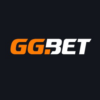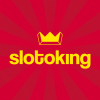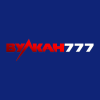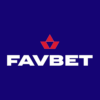The popularity of cryptocurrencies has led to the fact that quite a lot of crypto casino establishments with various bonus offers and large collections of gambling have appeared on the Ukrainian internet. Slot machines for real money are a priority area of activity of crypto casino, which is interesting for players with different levels of experience. Cryptocurrency casinos have certain advantages over establishments that offer to play only for Hryvnia, Euros, US dollars, and other standard currencies, but it should be noted that bitcoin casinos also offer to top up their accounts with USD, EUR, and the national currency of Ukraine.
Bitcoin casino rating compiled by CasinoUA.Club, will help you choose an honest, reliable place to play for Real Money. When compiling the rating, more important nuances of crypto casino activity are taken into account — from the number of bonuses to the presence of restrictions when withdrawing winnings.
Best crypto casinos in Ukraine
Looking for a way to make money online on games, fans of slot machines, roulette, who own cryptocurrency, will definitely pay attention to the services offered by the 5 best Ukrainian bitcoin casinos:
- Melbet is an entertainment platform with many gambling games developed by leading companies: Pragmatic Play, Endorphina, Microgaming, Belatra, Quickspin, and others. The crypto casino is organized by Dranap Ltd. in 2012, it operates under the license 5536/JAZ issued by the Curacao Gambling Commission. Allows you to play BCH, BTC, ETH, announces quick withdrawal of funds
- Netgame Casino — a cryptocurrency casino with many years of experience, is owned by Network Gaming Entertainment N.V. It has been operating since 2012 and offers a gambling catalog compiled from author’s projects of providers Igrosoft, NetEnt, Quickspin, Yggdrasil Gaming, Evolution Gaming, and others
PM Casino is a reputable institution with favorable bonus offers and a large volume of slot machines. Ideal for those who are interested in gambling with bitcoins and standard currencies. The variety of gambling games amazes even experienced players - GG.Bet club was founded in 2016 by Brivio Ltd., which received an 8048/JAZ license in Curacao. The total number of games is more than 1,100, most of which are slot machines with bonus rounds and interesting storylines. There is a wide range of methods for depositing and withdrawing funds
- Pin—up Casino is an institution with licensed software, operating since 2016, meets such requirements of modern customers as honesty, transparency, reliability, an extensive bonus system, and the availability of a loyalty program. Customers are invited to play at the casino for bitcoins and other currencies
Money withdrawal games (Ukraine) are interesting for various categories of players — fans of slot machines and those who spend their free time at the table with various Roulettes, place bets in entertainment with live dealers, compete for winnings in video poker and other online games.
Crypto casinos-advantages over regular clubs
The main advantages of crypto casino are related to payments — it is easier for visitors to pay with cryptocurrency than with fiat currency:
- Transactions are made quickly
- The client remains anonymous
- Minimum commission fees for withdrawing funds from bitcoin casino and transferring deposits
- There are no exchange operations
- There are no intermediaries — funds from the crypto casino are transferred directly to the player’s account
To play for bitcoins, you must first buy cryptocurrency or have an account with a certain amount of funds. If the client is unable to pay with bitcoins or another type of crypto, they can play for the standard currency that they prefer.
Crypto casino gambling
Bitcoin casino offers an assortment of gambling games that are typical of an ordinary institution. The largest niche in the game libraries of clubs belongs to slot machines — classic and modern. Usually establishments actively cooperate with providers:
- Pragmatic Play
- Endorphina
- Booming Games
- Microgaming
- Igrosoft
- NetEnt and others
Slot machines are offered in different versions by genre — slots with fruits, pyramids, books, epic heroes and fairy-tale characters. Almost every platform offers to place bets with Real Money in magic-themed slots based on feature films, TV shows, and comics. There are a lot of video slot providers with 3D technologies in the range.
Slot machines differ in the type of payouts — there are models with standard payout coefficients and games with jackpots — static and progressive. A fan of gambling can choose a video slot that offers to place bets on 1 or several lines or bet real money on all lines at once. Slot machines with three or five reels are available for selection.in some models, the playing field is non-standard, with segments that are added during the gameplay.
The range of gambling games in crypto casinos is made up of:
- Live Dealers
- Card entertainment
- Roulettes
- Bingo
- Video poker
- Scratch cards, others
Both beginners and experienced players will have no problems choosing a game for Real Money. If you don’t want to play for your own money, you can use demo versions of roulette, card games, and slots. This mode allows you to play at the expense of the institution, but without receiving winnings, and is well suited for beginners and visitors who do not want to earn money on gambling entertainment.
Crypto casino bonuses
Crypto casinos attract attention to their services like traditional establishments-they offer profitable, numerous rewards:
- No deposit registration bonuses — with bonus funds, free spins
- For the first deposits to the account — depending on the club’s rules, the player can receive rewards for the first deposit or for 2-6 deposits. As a reward, a percentage on the deposit is used, possibly supplemented with free spins
- Birthday-they do not require adding funds to your account.they are issued to birthday parties who have specified the date, month, and year of birth in their account and confirmed the information with passport scans. The gift must be won back for a certain amount of time, otherwise it will “burn out”
- Cashback-refund of part of the deposits lost during the reporting period — a day, several days, or weeks. The refund percentage depends on the terms of the promotion. If cashback is returned under the loyalty program, then the percentage depends on the player’s level, if under the bonus program, then the same percentage is set for all players
- For confirming an email address, phone number, or joining a social network account, free spins are usually awarded in small quantities. Winnings on them can be withdrawn to a crypto account after wagering using the installed wager
Bonus programs in all cryptocurrency casinos are different, so before taking advantage of the offer, you need to thoroughly study the rules for calculating and wagering bonus funds and free spins.
We recommend that you familiarize yourself with https://kazinointernetelietuviskas.com/

























